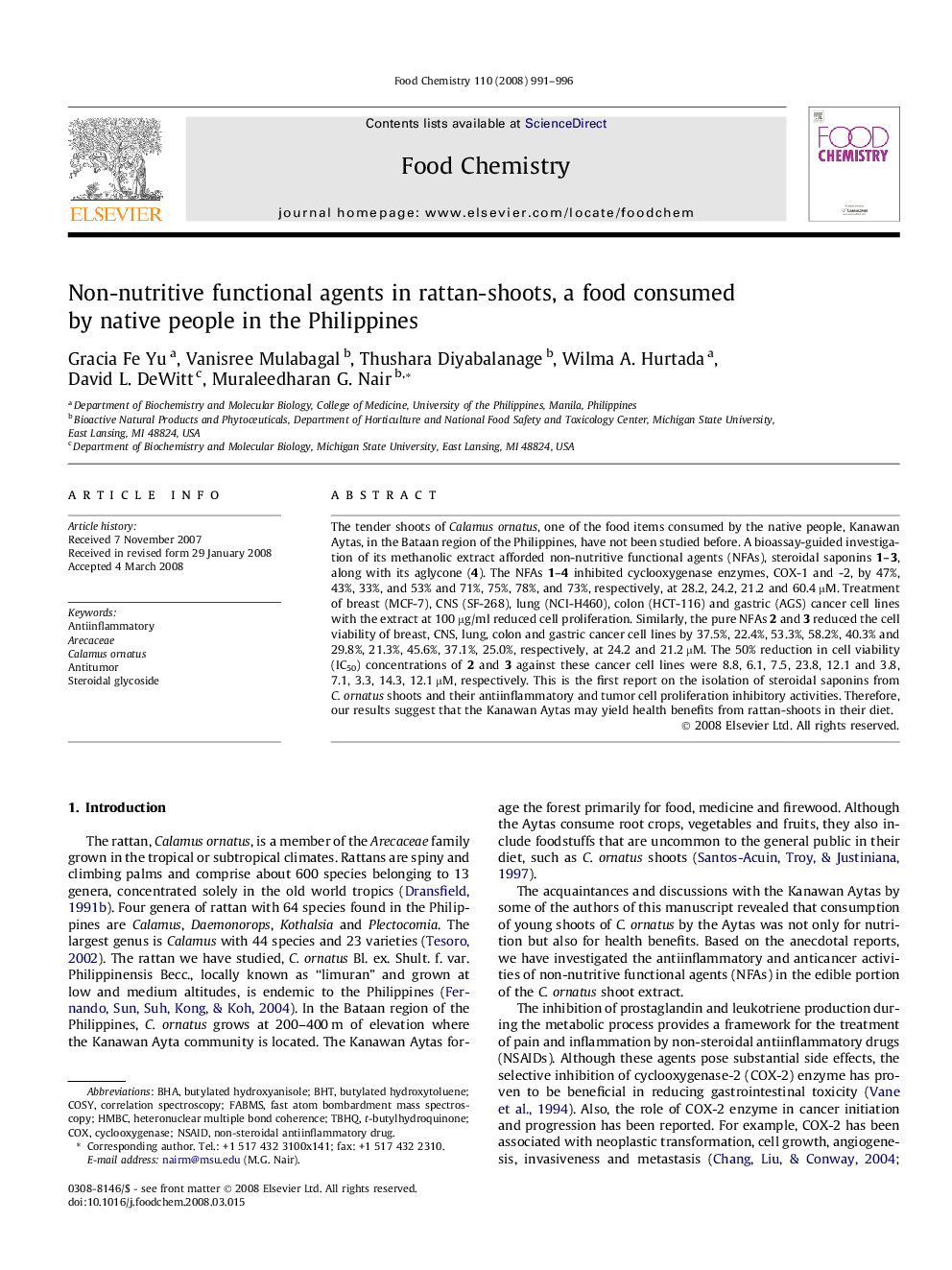| Article ID | Journal | Published Year | Pages | File Type |
|---|---|---|---|---|
| 1188181 | Food Chemistry | 2008 | 6 Pages |
The tender shoots of Calamus ornatus, one of the food items consumed by the native people, Kanawan Aytas, in the Bataan region of the Philippines, have not been studied before. A bioassay-guided investigation of its methanolic extract afforded non-nutritive functional agents (NFAs), steroidal saponins 1–3, along with its aglycone (4). The NFAs 1–4 inhibited cyclooxygenase enzymes, COX-1 and -2, by 47%, 43%, 33%, and 53% and 71%, 75%, 78%, and 73%, respectively, at 28.2, 24.2, 21.2 and 60.4 μM. Treatment of breast (MCF-7), CNS (SF-268), lung (NCI-H460), colon (HCT-116) and gastric (AGS) cancer cell lines with the extract at 100 μg/ml reduced cell proliferation. Similarly, the pure NFAs 2 and 3 reduced the cell viability of breast, CNS, lung, colon and gastric cancer cell lines by 37.5%, 22.4%, 53.3%, 58.2%, 40.3% and 29.8%, 21.3%, 45.6%, 37.1%, 25.0%, respectively, at 24.2 and 21.2 μM. The 50% reduction in cell viability (IC50) concentrations of 2 and 3 against these cancer cell lines were 8.8, 6.1, 7.5, 23.8, 12.1 and 3.8, 7.1, 3.3, 14.3, 12.1 μM, respectively. This is the first report on the isolation of steroidal saponins from C. ornatus shoots and their antiinflammatory and tumor cell proliferation inhibitory activities. Therefore, our results suggest that the Kanawan Aytas may yield health benefits from rattan-shoots in their diet.
